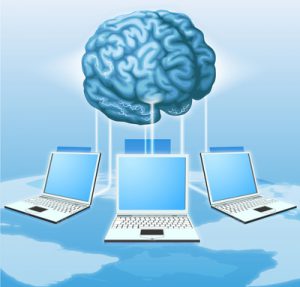Technology: a time sink or provider of unexpected benefits?
For younger generations, it is heard all too often: “technology makes you kids so lazy nowadays!” Just with anything new and unfamiliar, technology has been under fire for a plethora of issues, especially relating to the younger generations.
One of the most recent issues is the possible link between smart devices and clinical depression in teens and young adults. The average teenager has been found to spend upwards of nine hours per day online.
This brings up concerns about loneliness, isolation, and addiction. Most parents would see this as an issue for their child and likely a factor that plays into their mental health issues.
Although it would make sense to try to limit their children’s use of technology, some studies have shown that technology can be used effectively to treat mental health disorders.
An app for everything – including helping out mental health
The idea is: if these teens and young adults are “addicted to their phones,” it would make their phones the perfect channel to reach them. Over a dozen of these studies have presented evidence suggesting that mental wellness apps and online programs have contributed to a reduction in anxiety, depression, and stress among participants.
These applications work by implementing aspects of cognitive behavioral therapy and nature’s relaxing sounds. Much of the positive feedback was due to the easy access to these services as well as the privacy that they gave the participants.
For adults and teens alike, the fact that smart phones are no longer all about texting and games should be embraced. A variety of other apps can also help individuals become more organized through the use of calendars and reminders. Through fitness apps, users can improve their health with nutrition information, healthy recipes, and exercises. While not the same as calming apps, these can help people feel more on top of their busy lives or improve their physical health, which also affects mental health.
Although these wellness apps may prove to play a positive role in treating mental health issues, developers and researchers still stress the importance of traditional therapy. These apps and programs can help struggling teens and young adults, but they only show such positive results when coupled with traditional treatment.
Though we can all agree that teens do not need to spend all their waking hours on their smart devices, we should all understand the benefits that these devices may offer when used correctly.
(Image Source: iClipArt)


